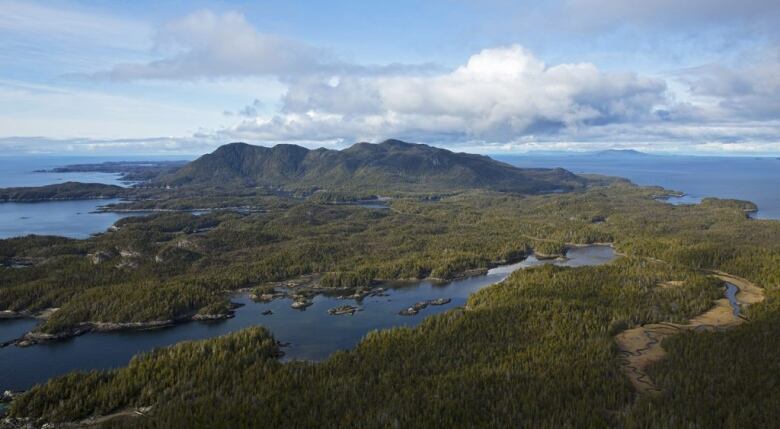'We are basically flying blind': B.C. mariner says broken weather stations making his job more dangerous
Stations are run by Environment Canada and maintenance performed by coast guard

A career mariner from Prince Rupert, B.C., says three area automatic weather reporting stations operated by Environment Canada are currently broken and it is making his job more dangerous than it needs to be.
Sascha Gilbert, who primarily provides water taxi service to and from ships within Prince Rupert anchorage, said the Lucy Islands Lightstation and Grey Islet station have been not working properly for almost a year and recently a third station, located at Holland Rock, also stopped functioning properly.
The stations, which are meant to provide up-to-the minute marine weather, are operated by Environment Canada and maintained by the coast guard.
In a statement, Environment Canada said it knew about wind sensor problems in April of 2019 on Lucy Island and on Grey Islet in February 2019.
The statement says the battery has been intermittent on Holland Rock since Dec.19, 2019, and should resume normal functioning once the solar panel sufficiently recharges the battery.

According to the department, all three stations will be repaired between Feb. 17 and 21.
Gilbert says stations should be fixed for safety's sake when they break and not months after the fact.
"They are visited once a year for maintenance. We find that they go down much more often than that and end up being offline until the next scheduled maintenance visit."
Information critical for safety
And in his line of work, Gilbert says knowing what the conditions are on the ocean is critical.
"The waves can be as much as six metres in height. We will have wind speeds that are of higher value than what was reported or forecasted and we will also often have weather that comes up sooner than expected," said Gilbert.
He said without a steady stream of current information, he has to rely on weather forecasting which he says can be a guessing game and not always accurate.
"We are basically flying blind. We have no idea what to expect when we get out there," said Gilbert.
On Environment Canada's website, there is currently no reported information about conditions or visibility from Lucy Islands Lightstation, Grey Islet or Holland Rock.
Prince Rupert major deep sea port
The Port of Prince Rupert is the deepest natural harbour in North America and almost 30 million tonnes of cargo moved through the port in 2019, according to its website.
"Prince Rupert is a busy international port. It is vital for us to have an accurate reporting system," said Gilbert.

Environment Canada says it is currently working to confirm when the three outages occurred.
The department said in a statement that it's meteorologists use a variety of tools for severe weather detection and prediction. This includes weather radar, weather buoys, satellite images, surface weather stations, lightning detectors and sophisticated computer models.
With files from Matt Allen